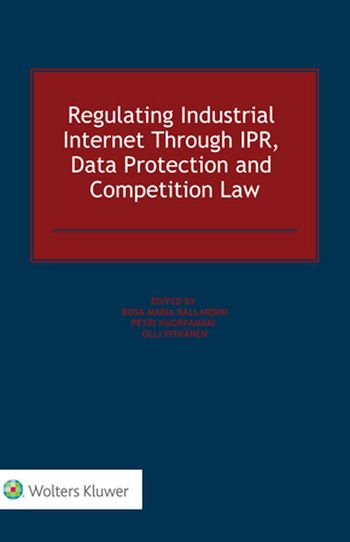
Regulating Industrial Internet Through IPR, Data Protection and Competition Law is the result of a larger project titled ‘Future Regulation of Industrial Internet (FRII)’, a collaborative academic-industry study funded by Business Finland (former Tekes) – the Finnish Funding Agency for Innovation, and the industrial consortium between 2016 and 2019. The digitization of industrial processes has suddenly taken a great leap forward, with burgeoning applications in manufacturing, transportation and numerous other areas. Many stakeholders, however, are uncertain about the opportunities and risks associated with it and its effect on businesses and national economies. Clarity of legal rules is now a pressing necessity. This book, the first to deal with legal questions related to Industrial Internet, follows a multidisciplinary approach that is instructed by law concerning intellectual property, data protection, competition, contracts and licensing, focusing on business, technology and policy-driven issues. It aims to provide a comprehensive analysis of the Industrial Internet regulation.
What’s in this book:
Experts in various relevant fields of science and industry measure the legal tensions created by Industrial Internet in our global economy and propose solutions that are both theoretically valuable and concretely practical, identifying workable business models and practices based on both technical and legal knowledge.
Perspectives include the following:
As Industrial Internet technologies are already being used in several businesses, it is of paramount importance for the global economy that legal, business and policy-related challenges are promptly analysed and discussed. This crucially important book not only reveals the legal and policy-related issues that we soon will have to deal with but also facilitates the creation of legislation and policies that promote Industrial-Internet-related technologies and new business opportunities. It will be of interest for a variety of audiences spanning from practitioners, patent and other IPR attorneys, innovation economists, companies, engineers operating in the Industrial Internet ecosystem, competition authorities and other policymakers.